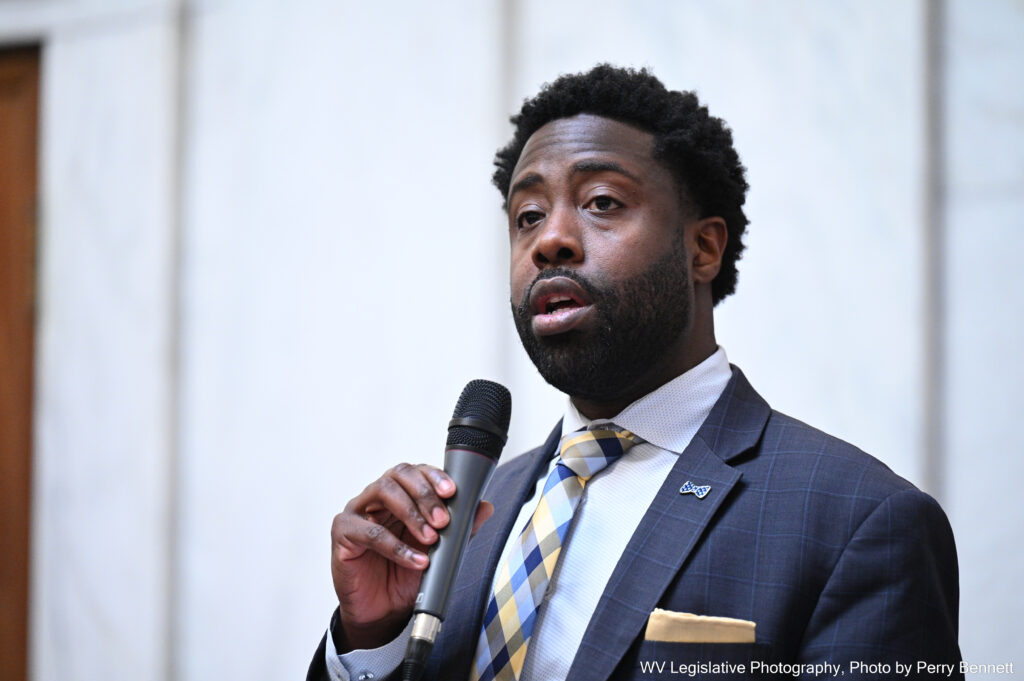Among the bills on third reading in the House of Delegates Thursday, a proposal on allowing schools to hire trained security guards, led to a heated societal debate over the issue of training the guards in the concept of systemic racism.
House Bill 4851 is a bill to allow for public and private schools in West Virginia to employ security personnel. The proposed training for these security guards includes firearms training, knowing certain state laws, properly dealing with disabled students, and understanding the concepts of racism and systemic racism.
An amendment proposed to the bill would strike “systemic racism” from the training requirements. That sparked what was at first a one-sided debate – because some amendment sponsors would not yield to a question.
Del. Amitra Hamilton, D-Monongalia, opposed the amendment. She said systemic racism is woven into education, health care and much of the fabric of society.
“People are not willing to agree that this is happening in West Virginia,” Hamilton said. “Because that will lend to the ideology that we have structures in place within this state that are intentionally prohibiting people, particularly people of color, people like me, from advancing, from having access to equal education, equal health care, we don’t want to agree to those things happening here.”
Del. Tom Fast, R-Fayette, supported the amendment. He said the current language in this bill presupposes and would codify that the whole society or the whole education system is racist or biased.
“That means all persons are inherently racist or biased,” Fast said. “So you can look to the person on your left, and you can look to the person on your right regardless of their color, and you can presuppose that they are racist or biased. This amendment seeks it and rejects that notion.”
House Minority Leader Sean Hornbuckle, D-Cabell, said acknowledging systemic racism doesn’t make anyone any less of a person, or less of a Republican.
“I’m just finding it hard to understand that now, all of a sudden, we’re doing things to chip away at people working together,” Hornbuckle said. “To acknowledge things. Why would we do that? I mean, we see it, just recently in the financial sector, with financial firms, and banks being caught red handed. On not allowing mortgages for certain people, we’ve seen insurance companies denying coverage for certain people.”
Other Republicans joined Democrats in speaking against excluding systemic racism from school security guard training.
Finally, the amendment sponsor, Del. Elias Coop-Gonzalez, R-Randolph, a Latino, said he was elected, thus proving his point.
“I’m from Guatemala, and my mom is Indigenous. And I inherited her last name,” Coop-Gonzalez said. “Today, none of the people sitting over there have had the courage to condemn. Not the gentleman from the 5th or the 25th. I guess they didn’t show up to work. But in my district, Latinos make up less than one percent of the population. But in 2022, for only the second time in the history of our state, they elected me, a Latino man, to represent them. Is that a racist system? No. I’m living proof of it.”
The amendment passed 75-20, removing systemic racism from the training list. House Bill 4851 passed 89-0 with 11 members either absent, or most of the 11, not voting.




















